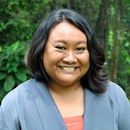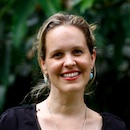Community participation as a REDD+ safeguard
When making decisions about land use, involving diverse members of the community can help ensure fairer outcomes for all and sustainability of the project beyond the implementation period.
This is one of the key ideas behind the promotion of community participation as a safeguard for implementing REDD+: schemes to reduce emissions from deforestation and forest degradation, while fostering conservation, sustainable management of forests and enhancement of forest carbon stocks.
In Indonesia, the REDD+ safeguards articulated through the United Nations Framework Convention on Climate Change (UNFCCC) have been put into practice via a national scheme known as PRISAI (Prinsip, Kriteria, Indikator, Safeguards Indonesia; Indonesian Safeguards, Indicators, Criteria and Principles) to ensure equitable distribution of benefits.
PRISAI has so far been tested in four provinces, including the densely forested province of Jambi on the island of Sumatra. Scientists from CIFOR together with NGO network KKI WARSI (Komunitas Konservasi Indonesia WARSI; Indonesian Conservation Community WARSI) visited the area of Bukit Panjang Rantau Bayur – Bujang Raba for short — to see how communities in Jambi are being involved in and benefiting from interventions designed to protect local forests.
They organized three focus group discussions with local people, one each with an exclusive focus on men, women, and youth. The diverse groups expressed some common concerns about equal access to benefits from forest protection interventions.





















